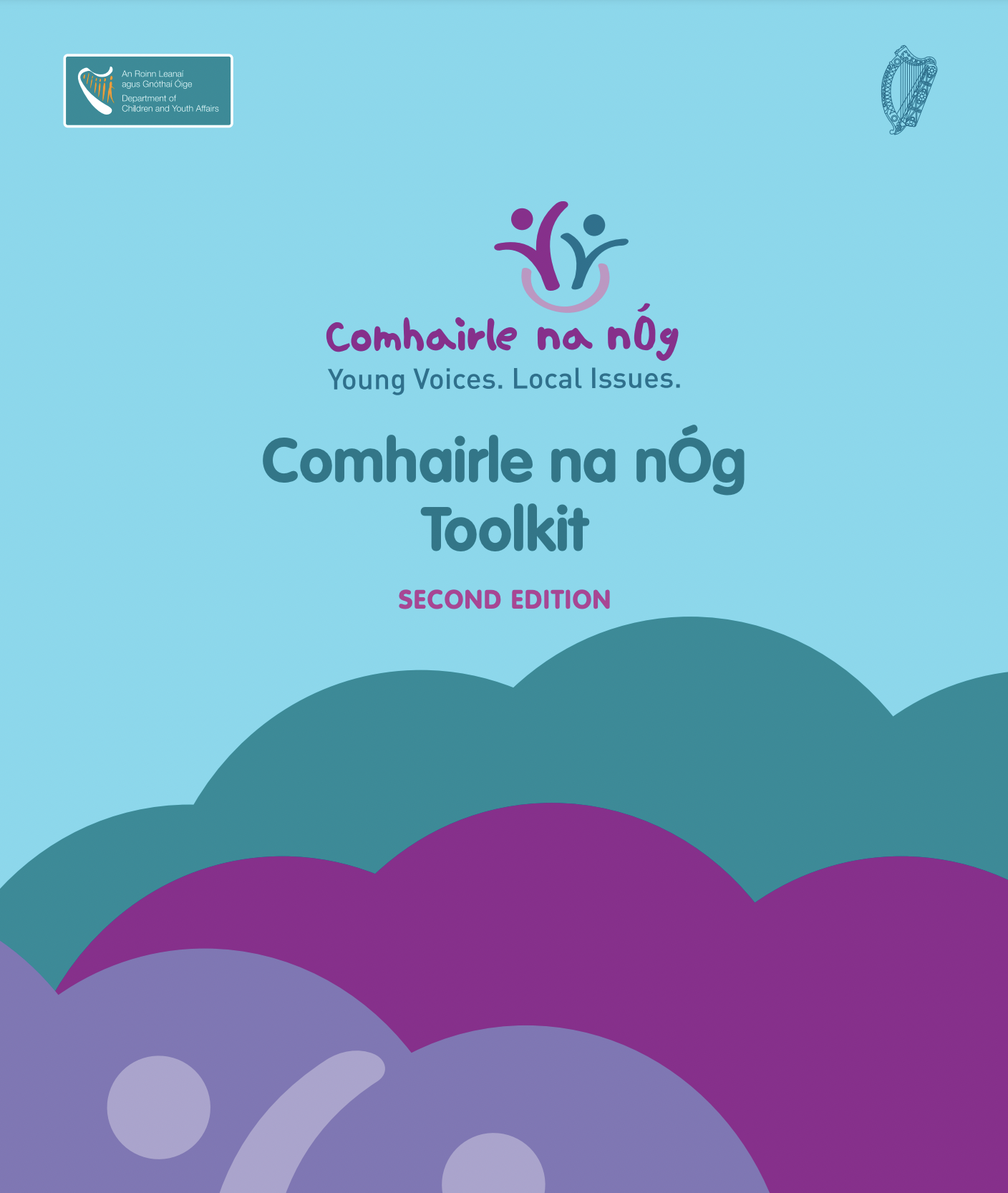Comhairle na nÓg Toolkit (Second Edition)
Published in 01st of December 2016

Contributors
Author: Department of Children and Youth Affairs (DCYA) Citizen Participation Unit
Publisher: Department of Children and Youth Affairs
Date: 2016
Geographic Coverage: Ireland
Type of Resource: Report
Sector/setting: Government
Vulnerable groups: Children, Young People
Developed with children and young people? Yes
Type of participation: Consultations With Children
Availability: Open Access
Keywords: Child, Participation, Young People, Voice
Notice: Array to string conversion in /home/madcrad/hubnanog/wp-content/themes/visual-composer-starter-child/functions.php on line 93
Introduction
The Comhairle na nÓg Toolkit has been developed by the Department of Children and Youth Affairs (DCYA) Citizen Participation Unit to support the work of those who organise and run the 31 Comhairlí na nÓg throughout the country. Comhairlí na nÓg are part-funded by the DCYA Comhairle Development Fund, which is managed by Pobal in cooperation with the DCYA. In addition, the DCYA Child and Youth Participation Officers provide training, advice and support to organisers of Comhairle na nÓg and work on other DCYA child participation initiatives.
The role of the DCYA Citizen Participation Unit is to ensure that children will have a voice on matters that affect their lives and their views will be given due weight in accordance with their age and maturity. This is contextualised in the National Strategy on Children and Young People’s Participation in Decision-Making 2015–2020, a cross-government strategy aiming to ensure that children and young people have a voice in their individual and collective everyday lives. While the strategy recognises that children and young people have a right to participate in decisions that affect their lives, it focuses on the everyday lives of children and young people and the places and spaces in which they are entitled to have a voice in decisions that affect them.